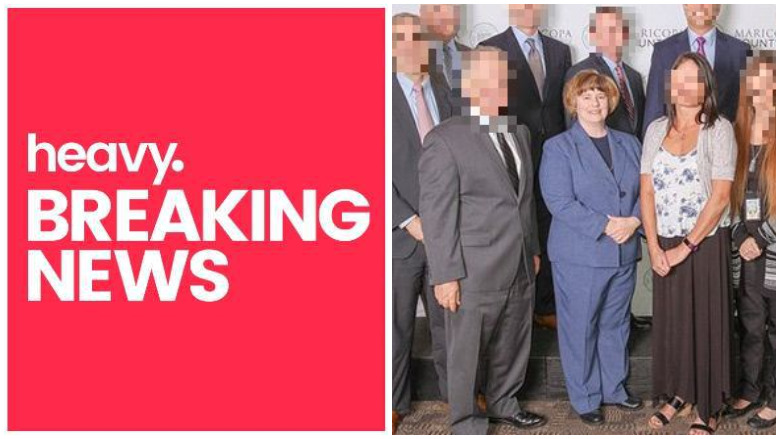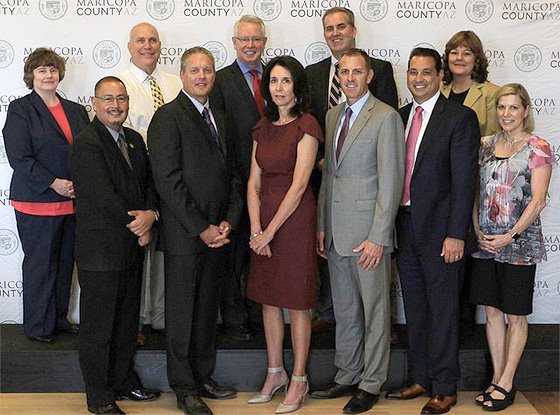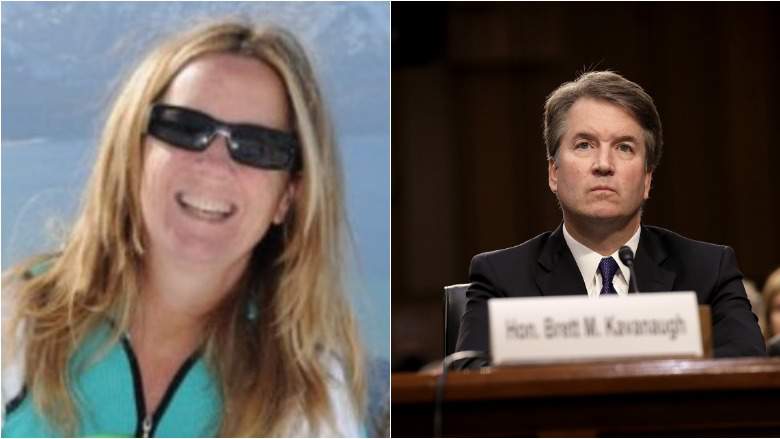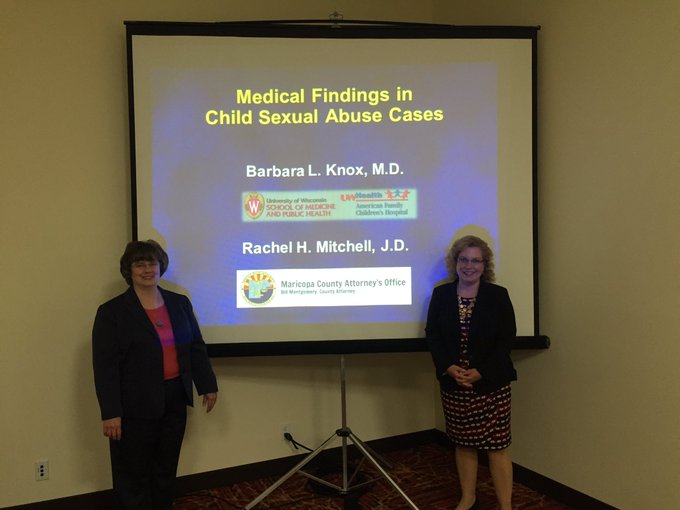
Maricopa County Attorney Rachel Mitchell is a prosecutor in Maricopa County, Arizona.
Rachel Mitchell, a veteran sex crimes prosecutor from Maricopa County, Arizona, will question Dr. Christine Blasey Ford during the September 27, 2018 Senate Judiciary Committee hearing into the nomination of Judge Brett Kavanaugh to the U.S. Supreme Court. That has placed Mitchell’s own background and biography under scrutiny.
One of the key claims that some are making on social media against Rachel Mitchell involves Arizona’s and Maricopa County’s rape kit backlog. What is the truth? Does Maricopa County have a rape kit backlog, and what was Rachel Mitchell’s role in it?
In a statement, Senate Judiciary Committee Chairman Chuck Grassley confirmed that Republicans on the Committee had asked Mitchell to “question the witnesses scheduled to testify on Thursday at the committee’s continuation of its hearing to consider the nomination of Judge Brett Kavanaugh to serve on the United States Supreme Court.”
Here’s what you need to know:
Rachel Mitchell Was on a Task Force Dealing With Maricopa’s Thousands of Untested Rape Kits
Rachel Mitchell is a prosecutor from Arizona, but she’s now on leave.
“Mitchell worked in the Maricopa County Attorney’s Office in Phoenix as the chief of the Special Victims Division, which covers sex crimes and family violence,” reported 12News.
CNN reported that Mitchell is currently on leave from her position as “the deputy county attorney and as the chief of the Special Victims Division” in Maricopa County.

MCAO staff pictured: Special Victims Division Director Rachel Mitchell, Sex Crimes Bureau Chief Yigael Cohen, County Attorney Bill Montgomery, Major Offenders Division Director Jon Eliason, Legal Management Assistant Rhonda Eisenhour, Victims Services Division Director Shawn Cox
Rachel Mitchell is a registered Republican, according to the Washington Post, which reports that she’s worked in the Maricopa County office for 26 years.
She has been a team member responsible for developing sexual assault prosecutor protocols for the Maricopa County office.
The County Attorney’s newsletter also mentions that Mitchell was part of a team that won an award for dealing with a “sex assault backlog.”
The caption with the photo on rape kits that includes Mitchell in the picture reads, “More than 4,000 untested sexual assault kits consisting of evidence collected from victims have been identified in Maricopa County. Concerns that this backlog could discourage victims from coming forward and potentially give serial rape offenders the opportunity to commit additional sex crimes, led the Office to create a sexual assault backlog program. MCAO formed a multidisciplinary team to develop a victim-centered Sexual Assault Protocol for investigations, forensic medical exams, victim notification and prosecution of sex offenses. In its first year the program had almost 2,000 kits sent for testing, leading to five sex assault charges being filed and thus far, one conviction.”
However, the site End the Backlog says a state audit in 2016 found that there were still more than 6,000 untested rape kits in Arizona. More than 4,300 were from Maricopa County. An open records request from an advocacy organization in Tucson helped spur some of the attention to the issue, the site says. Critics have pointed out that Mitchell was a sex crimes prosecutor for years at that point, and rape kit testing was up to the prosecutor’s discretion. AZCentral reported that advocates blamed a lack of funding, in part, and said the decisions for testing were often made at the police level.
You can read that 2016 state audit here. It reads, in part, “in reviewing the inventory, it is important to understand the history of why sex crimes evidence kits went untested or were not submitted to the crime laboratory for testing in the first place. Primary causes include limited resources for both police agencies and crime laboratories, investigative discretion and prosecutorial decision making.”
Mitchell has also prosecuted cases involving delayed reporting and has handled multiple cases involving priests accused of sexual abuse. For example, in 2006, Mitchell prosecuted Joseph Briceño, a former parish priest from Chandler, Arizona, who was accused of sexual conduct with a minor. The Arizona Republic reported that the victim took 10 years to report the alleged offenses, and prosecutors took another decade to go forward with the case. In another priest sex abuse case, Mitchell argued against lower bond for Rev. Karl LeClaire.
Rev. Paul LeBrun, a Catholic priest, was sentenced to 111 years in prison in a sex abuse case that Mitchell prosecuted. Mitchell called the stiff sentence “vindication” for the victims, saying, “It also tells people who have been victimized by people in authority that someone is listening and will do something about it.”
Mitchell was quoted in a story in the Phoenix New Times in 2011 that reported on a plea agreement the Maricopa County Attorney’s Office gave to David Nelson, “a former elder at the Madison Park Congregation Jehovah’s Witness Church in Phoenix” who was accused of sexually abusing a teenage boy in the 1980s. Although he had confessed, according to the New Times, he received six months in jail, probation, and must register as a sex offender.
Mitchell told the newspaper, in a discussion of that case, that “time anchors” defined as specific memories and times were important to prove older sex crimes cases, saying, “It’s not uncommon for victims, especially teenage male victims, to tell you, ‘I was this age when it happened.’ Then, when you get ‘time anchors’ from them, you find out they were actually older. It’s a normal thing to do where you have a coping mechanism [in which] they imagine that they were younger…”
Chuck Grassley Praised Mitchell as a Career Prosecutor

Judge Brett Kavanaugh and Dr. Christine Blasey Ford.
In his statement, Chuck Grassley praised Rachel Mitchell’s career. Grassley said that Mitchell has “decades of experience prosecuting sex crimes,” calling her a “career prosecutor.”
He added, “As I have said, I’m committed to providing a forum to both Dr. Ford and Judge Kavanaugh on Thursday that is safe, comfortable and dignified. The majority members have followed the bipartisan recommendation to hire as staff counsel for the committee an experienced career sex-crimes prosecutor to question the witnesses at Thursday’s hearing.”
Although critics have alleged the GOP Senators just don’t want the bad optics of an all-male panel questioning Ford, Grassley gave another motive. “The goal is to de-politicize the process and get to the truth, instead of grandstanding and giving senators an opportunity to launch their presidential campaigns,” Grassley said.
“I’m very appreciative that Rachel Mitchell has stepped forward to serve in this important and serious role. Ms. Mitchell has been recognized in the legal community for her experience and objectivity. I’ve worked to give Dr. Ford an opportunity to share serious allegations with committee members in any format she’d like after learning of the allegations. I promised Dr. Ford that I would do everything in my power to avoid a repeat of the ‘circus’ atmosphere in the hearing room that we saw the week of September 4. I’ve taken this additional step to have questions asked by expert staff counsel to establish the most fair and respectful treatment of the witnesses possible.”
However, Ford’s attorneys have repeatedly objected to the Senate Judiciary Committee using an outside lawyer to question Ford. Michael Bromwich, an attorney for Ford, said previously in a statement, “This is not a criminal trial for which the involvement of an experienced sex crimes prosecutor would be appropriate. Neither Dr. Blasey Ford nor Judge Kavanaugh is on trial. The goal should be to develop the relevant facts, not try a case.”
